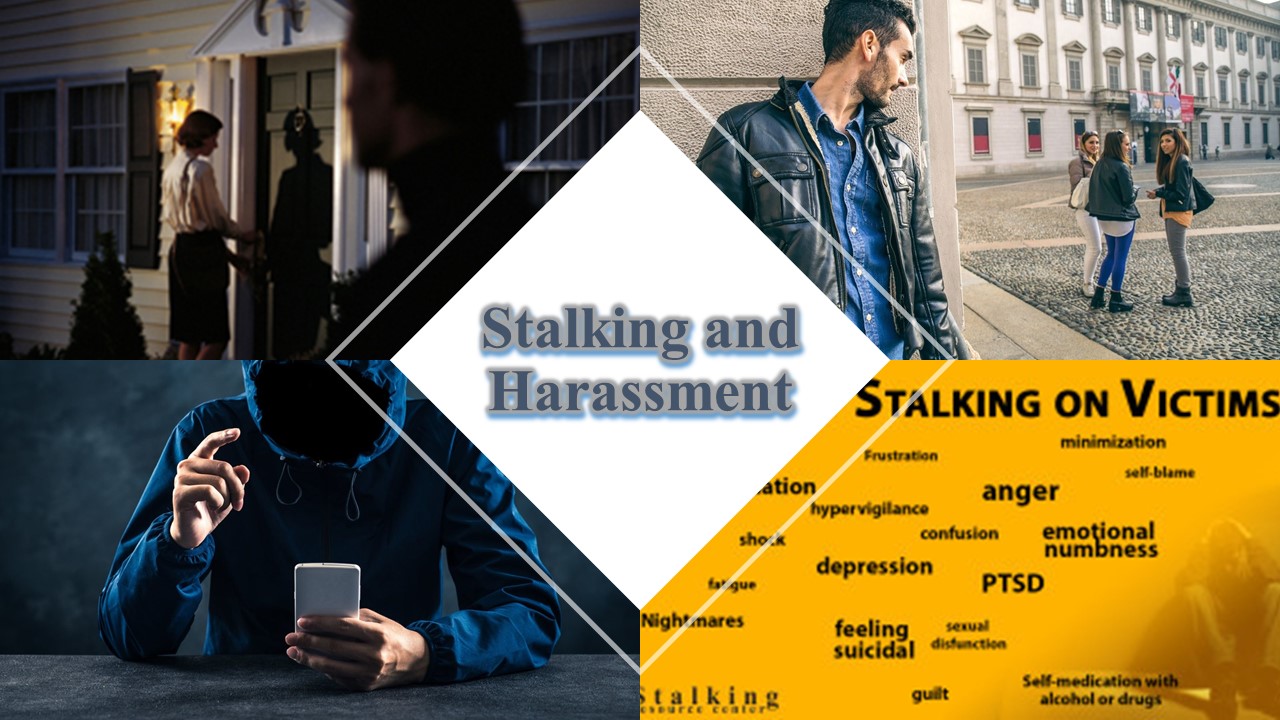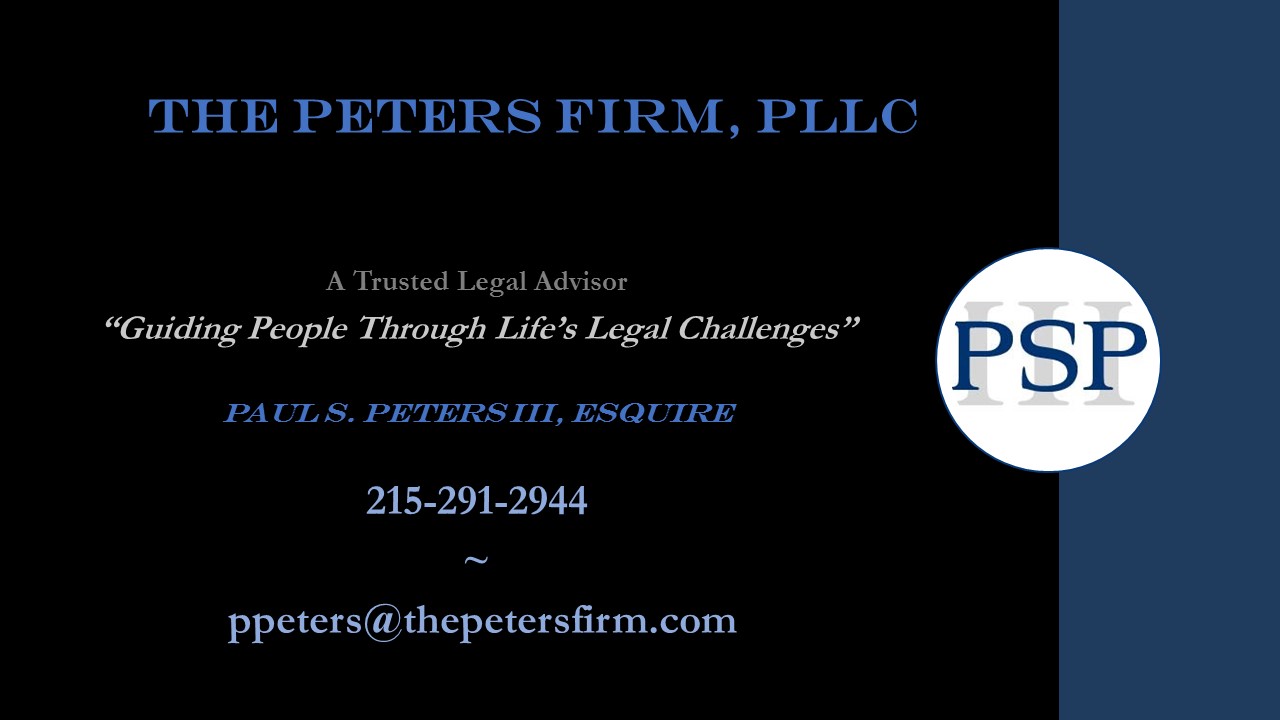
What is the Difference Between
Harassment and Stalking
in Pennsylvania?
Harassment and Stalking in Pennsylvania involve not just physical actions, but verbal and written actions, as well as acts of annoyance. Pennsylvania Law considers activities that are both online and off, a can be classified as “threatening” and “unnecessary” as Harassment or Stalking. Since the distinction between what one defines as “annoying”, “threatening”, or “unnecessary” is very subjective given we all have varying definitions of those terms, it illustrates the fact that the line between harassing vs. non-harassing or harassing vs. stalking behavior can be very unclear and confusing. The Questions of: What is the Difference Between Harassment and Stalking in Pennsylvania? is a very important one.
Before looking at the differences between Harassment and Stalking in Pennsylvania, it is important to look at some definitions associated with these crimes.
Communicates. To convey a message without the intent of legitimate communication or address by oral, nonverbal, written, or electronic means, including telephone, electronic mail, Internet, facsimile, telex, wireless communication, or similar transmission.
Course of conduct. A pattern of actions composed of more than one act over a period, however short, evidencing a continuity of conduct. The term includes lewd, lascivious, threatening, or obscene words, language, drawings, caricatures, or actions, either in person or anonymously. Acts indicating a course of conduct which occur in more than one jurisdiction may be used by any other jurisdiction in which an act occurred as evidence of a continuing pattern of conduct or a course of conduct.
Emotional distress. A temporary or permanent state of mental anguish.
These definitions help shed light on the concepts set forth in Pennsylvania’s Harassment and Stalking Statutes.
Harassment in Pennsylvania
Under Statute 18 §2709 of the Pennsylvania Criminal Code, actions that can be considered harassment are:
- Striking, shoving, kicking, or otherwise physically contacting another person;
- Threatening or attempting to strike, shove, kick, or otherwise physically contact another person;
- Following another person “in or about” a public place, or multiple public places;
- Engaging in conduct, or repeated acts, that serve no legitimate purpose;
- Conveying to or about another person lewd or threatening words, language, drawings, or caricatures;
- Communicating repeatedly in an anonymous manner;
- Communicating repeatedly at an extremely inconvenient time; or
- Repeated communication in some other form.
Whether you are guilty of harassment goes beyond simply how you acted. To harass someone, you must engage in one of the mentioned actions with the intent to “harass, annoy, or alarm” them.
Harassment in Pennsylvania Through Online Means Involving a Child
Pennsylvania’s Harassment Statute Under 18 § 2709, contains specific language creating a separate, and more serious, harassment crime when it involves a child via online communication or acts. You are alleged to have committed cyber harassment of a child if you:
With intent to harass, annoy or alarm, the person engages in a continuing course of conduct of making any of the following by electronic means directly to a child or by publication through an electronic social media service:
– Seriously disparaging comments or opinions about the child’s physical appearance, sexuality, sexual activity, or health condition (physical or mental); or
– A threat to inflict harm.
These are crimes whether they are sent directly to the child or posted on social media. This is where parents must be concerned and attentive regarding how their children/teenagers interact with other children/teenagers through texts, email, Facebook, Twitter, Snapchat, and Instagram.
Stalking in Pennsylvania
Stalking is defined under Statute 18 §2709.1 of the Pennsylvania Criminal Code. Pennsylvania Courts, District Attorneys, and Judges take stalking charges extremely seriously. While stalking and harassment are frequently discussed together, Pennsylvania defines stalking as:
– A course of conduct or repeated actions which put another person in reasonable fear of bodily harm or emotional distress; or
– A course of action or repeated communication with intent to place fear of bodily harm or emotional distress in the recipient.
Specifically, a “course of conduct” is a pattern of more than one act over a certain period.
Repeated phone calls; a flood of texts, emails, Facebook posts, Twitter DMs, or Snapchat Messages; unwelcome gifts and following a person in ways that may scare or harass them, standing outside of someone’s home, place of employment, or car, are among the distinctive features of stalking. But every case is unique, and a lot depends on the circumstances involved.
The above should help in clarifying the question: What is the Difference Between Harassment and Stalking in Pennsylvania?
If you are charged with Harassment or Stalking your side of the story needs to be explained clearly and as quickly as possible. Harassment and Stalking cases in Pennsylvania create complicated fact scenarios with serious consequences if convicted, therefore, these cases require that you have an experienced, knowledgeable, and aggressive defense attorney to craft and present clear and convincing arguments challenging the evidence, and careful and precise cross-examination to shed doubt on the testimony of witnesses. This is why you need a trusted and experienced criminal defense attorney such as Paul S. Peters III, Esquire.
If you or a loved one are faced with a serious drug offense such as Possession with Intent to Deliver, you can call Attorney Paul S. Peters III, Esquire 24 hours a day, 7 days a week, and he can appear at late night bail hearings. Attorney Paul S. Peters III, Esquire knows that crime and the police never sleep.
If arrested for Harassment or Stalking, YOU BETTER CALL PAUL AT:
215-291-2944
ppeters@thepetersfirm.com
TRUSTED, AGRESSIVE, ZEALOUS, AND EXPERIENCED PENNSYLVANIA CRIMINAL DEFENSE ATTORNEY
If you arrest in any of the following Pennsylvania Counties: Montgomery, Philadelphia, Bucks, Delaware, Chester, Lehigh, Lancaster, Northampton, Berks, Adams, Cumberland, Dauphin, Franklin, Fulton, Huntington, Juniata, Lebanon, Mifflin, Perry, Snyder, York Bradford, Cameron, Centre, Clinton, Lycoming, Montour, Northumberland, Potter, Sullivan, Tioga, Union, Carbon, Columbia, Lackawanna, Luzerne, Monroe, Pike, Schuylkill, Susquehanna, Wayne, and Wyoming County
It is important you contact the trusted, aggressive, and experienced Pennsylvania Criminal Defense Attorney:
Paul S. Peters III, Esquire at:
215-291-2944
ppeters@thepetersfirm.com



